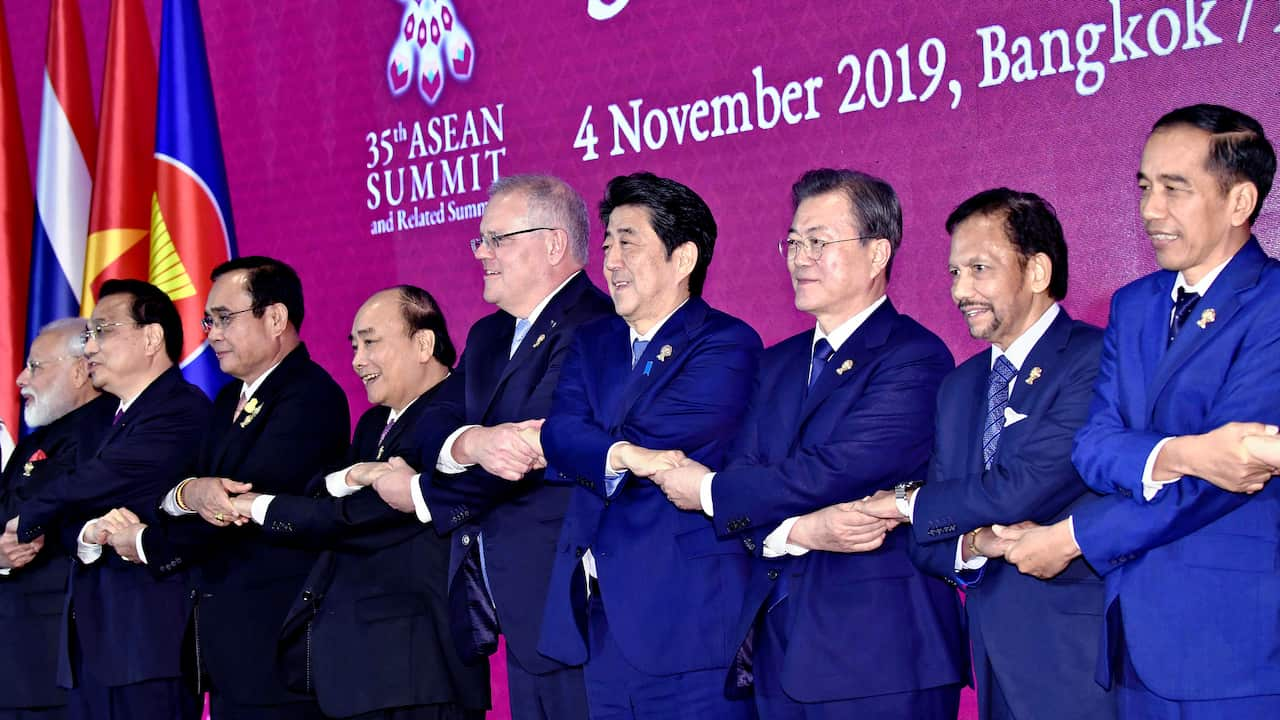Australia will become part of massive Asia-Pacific free trade pact that covers half the world's population.
Regional leaders, including Prime Minister Scott Morrison, agreed on a 15-member Regional Comprehensive Economic Partnership at the East Asia Summit in Bangkok, Thailand.
The pact includes Australia, China, Japan, Indonesia and New Zealand and 10 ASEAN countries - but not India - and is expected to be finalised by November 2020.
The countries involved produce about 29 per cent of global gross domestic product and account for half the world's population.
Nine of Australia's top trading partners - representing 58 per cent of Australia's trade and 66 per cent of its exports - are part of the deal.
Trade Minister Simon Birmingham said Australia will continue to try to get India, which withdrew after concerns about opening its economy to China, into the pact.
"As RCEP economies develop and their middle classes grow, this deal will open up new doors for Australian businesses and investors across our region," Mr Birmingham said in a statement.

Some leaders pushed back against protectionism amid fears Mr Trump's trade war with China could slow global growth to the lowest rate in a decade, according to an International Monetary Fund prediction.
"We need to protect the free-trade order... and bring the global economy back on track," said South Korean leader Moon Jae-in.
The US-China spat has seen the two sides swap tariffs on billions of dollars worth of goods, though they have agreed to roll back some of the measures with a "first phase" deal that could be soon signed.
Prime Minister Scott Morrison said "the text of RCEP is done", echoing the deal's open-door policy.
"It is important to have India in and that is certainly our preference," he told reporters in Bangkok.
Even without India in the mix, RCEP will be the world's largest trade pact.
A diplomatic source in Bangkok told AFP India's inclusion in the deal is important to offset Beijing, the world's second biggest economy.
"RCEP has better strategic value if it includes India. Without India, there is no balance," the diplomat told AFP.

